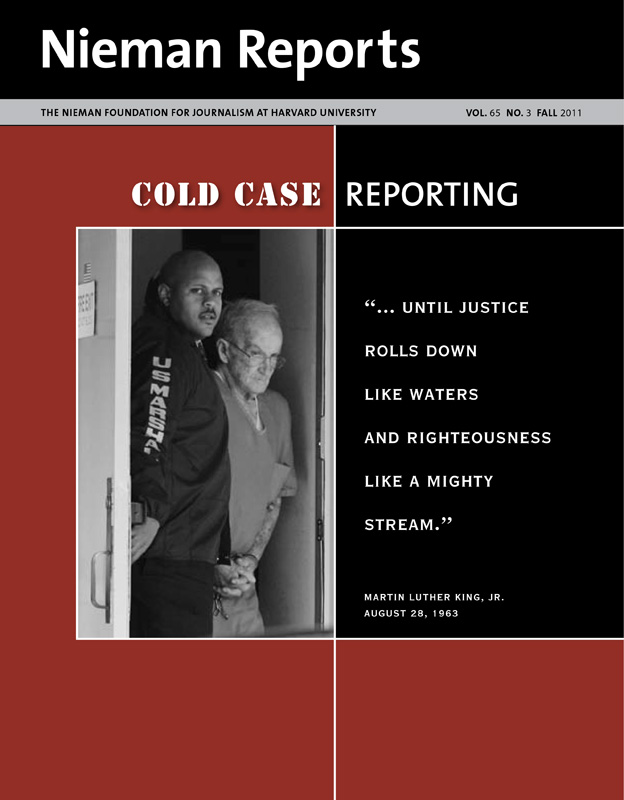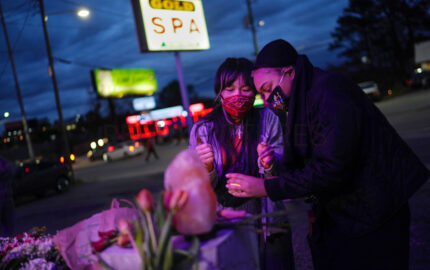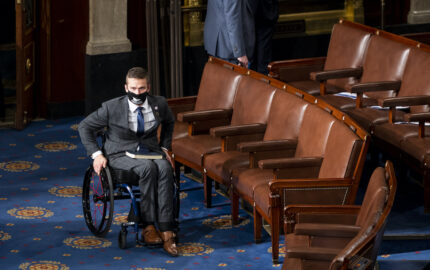Old World War II movies usually included the standard cliché of a United States Army unit serving as a microcosm of American diversity. As the soldiers trudged along muddy roads or charged Nazi foxholes, viewers
invariably met the immigrant street kid, the wholesome Southern farm boy, the thoughtful college graduate, and other stereotypes.
The units never included a black soldier. In fact, hundreds of thousands of black men served in the war, although the vast majority was only allowed to serve in support roles. All the units were segregated and racial tensions flared throughout the war, though the American public rarely heard about any of it.
Related Article
“Carl Sandburg’s Reporting Foretold the Chicago Race Riots of 1919”
– Cameron McWhirter
Only a handful of black journalists covered the war, and it was under strictly controlled conditions. Like all journalists traveling with the military at the time, what they saw was restricted and what they published was censored.
A slender book published earlier this year, "Roi Ottley's World War II: The Lost Diary of an African American Journalist," offers a window on what it was like for black journalists traveling with the armed forces and trying to cover racial inequities under the strictures of censorship and prejudice. Ottley, once one of the nation's most famous black correspondents, is today largely forgotten. Mark A. Huddle, a history professor at Georgia College and State University, carefully edited this volume and has put Ottley's writings in a social and historical context with his thoughtful introduction.
In June 1944, shortly after D-Day, Vincent Lushington "Roi" Ottley (1906-1960) traveled to Europe on assignment for P.M., a left-leaning afternoon newspaper. A year earlier, he had become famous as the author of the bestselling "New World A-Coming: Inside Black America," which cast a critical eye on American democracy and segregation.
Ottley set out to bring the same critical assessment to American armed forces in Europe. He wrote about racial tensions for publication when he could, but he was much more explicit in his notebooks about the problems.
As a journalist, he had a special status in the military. Like other correspondents, he was ranked an officer, but he also was a black man operating in a white-dominated environment. He heard numerous rumors from black soldiers of prejudice and seething violence but could rarely track down the veracity of what he was hearing and often did not write these stories for publication. He did write about English women being harassed by white American soldiers for spending time with black soldiers, but he always had to temper the ugliness of these clashes for fear of censorship.
Ottley's writing clearly presents the stifled position of black soldiers ostensibly fighting for democracy in Europe while being treated as second-class citizens. "Everywhere I traveled in France, England, Italy and North Africa," Ottley wrote, "the soldier was saying: 'I'm going to get some of that Freedom they are talking about when I get home.' "
He was a flawed journalist. His sourcing was often vague, his writing pedestrian. He was fearful of seeing any combat, an odd posture for a war correspondent. Other black writers disliked him. Ralph Ellison wrote to Richard Wright that all Ottley cared about was "the bar, the bed and the table." But though he was far from a paragon of journalistic virtue, Ottley did play a major role in black journalism during the mid-20th century. And this book contributes to what hopefully will become a fuller exploration of black journalism and race relations during the World War II period.



